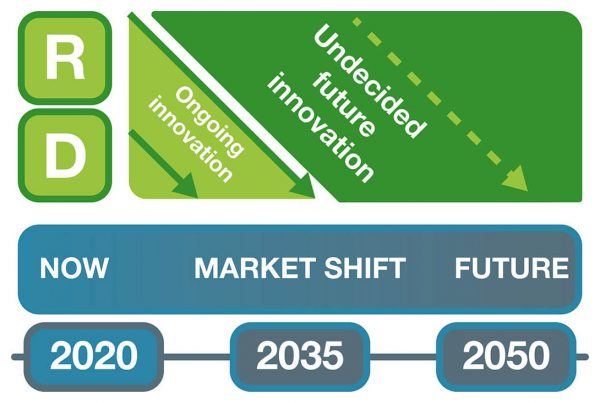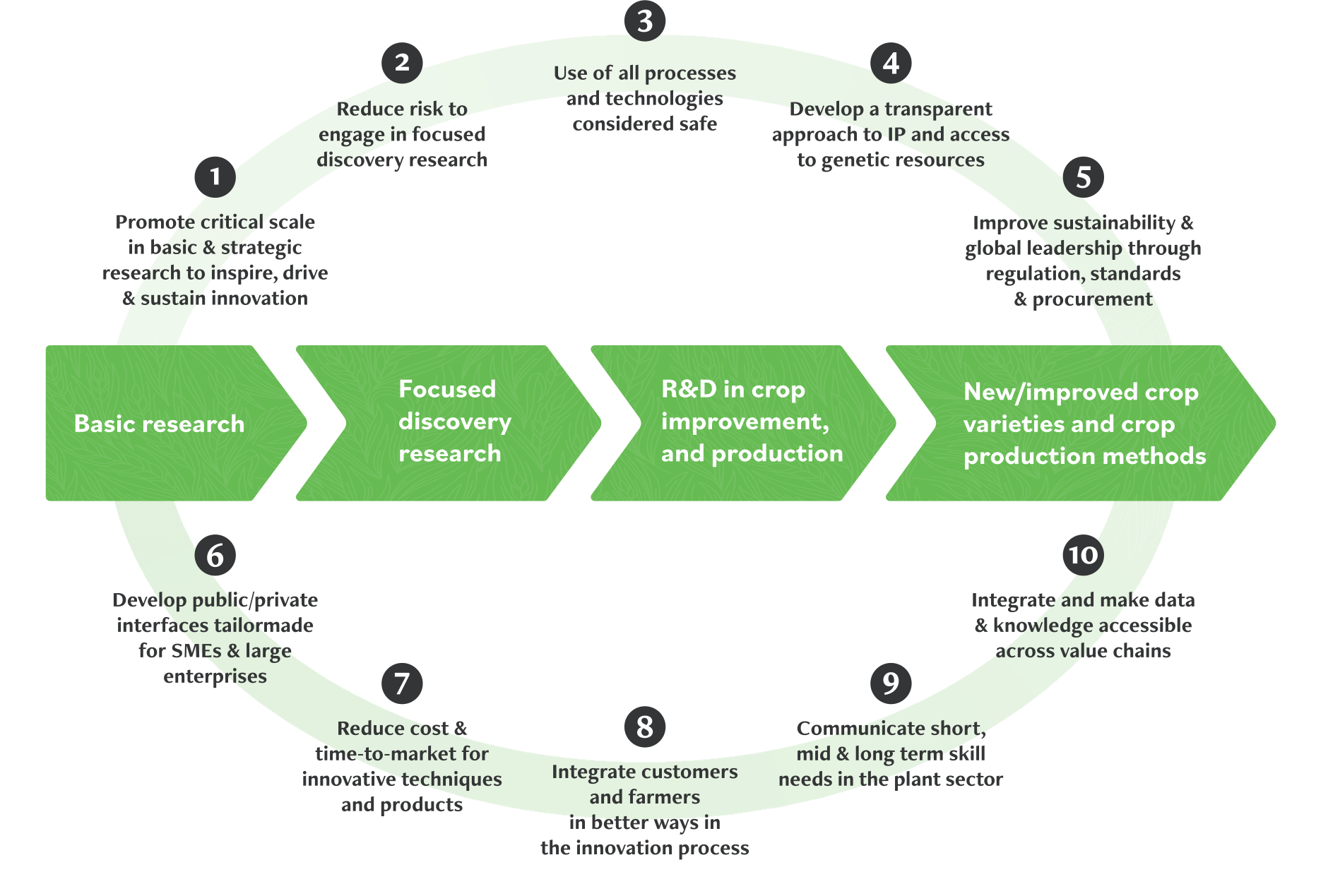Innovation
Plant ETP promotes the flow of innovation to the market by identifying challenges and solutions, and advocating for science-based decision making and an innovation-friendly policy environment.
It is important to understand that the time to market for future innovations derived from de novo research can, in some cases, take as long at 20 – 30 years. It is therefore essential to consider how market needs will change over time, and that actions supporting short-, medium- and long-term goals need to co-exist to achieve the EU Green Deal targets.
Particularly the 2030 targets of the Farm to Fork and Biodiversity strategies will mostly be addressed in the short- and medium-term by innovation that is already under development. These actions can often not go beyond repositioning or repurposing what is already on the market, or in the R&D pipeline. However, the 2050 targets are expected to be more stringent and will require de novo innovation.
To prepare pathways for such innovation today, it is of paramount importance to understand how future agricultural systems in Europe, but also outside, will likely evolve beyond 2030.
Plant ETP, together with partners from the CropBooster-P consortium published an opinion paper on this matter: “Biotechnology for Tomorrow’s World: Scenarios to Guide Directions for Future Innovation” (Cornelissen et al., 2020).

Innovation Flow.
In the short- to medium-term, the market will be served by R&D that is already ongoing. Different biotechnology sectors address changes in demand by repositioning and emphasising what is in today’s pipeline. De novo R&D will ideally address the demands of the future market. Adapted from (Cornelissen et al., 2020)
Plant ETP also published its Innovation Action Plan highlighting essential actions to support an open innovation environment in the EU:
Actions stimulating plant-based innovation
